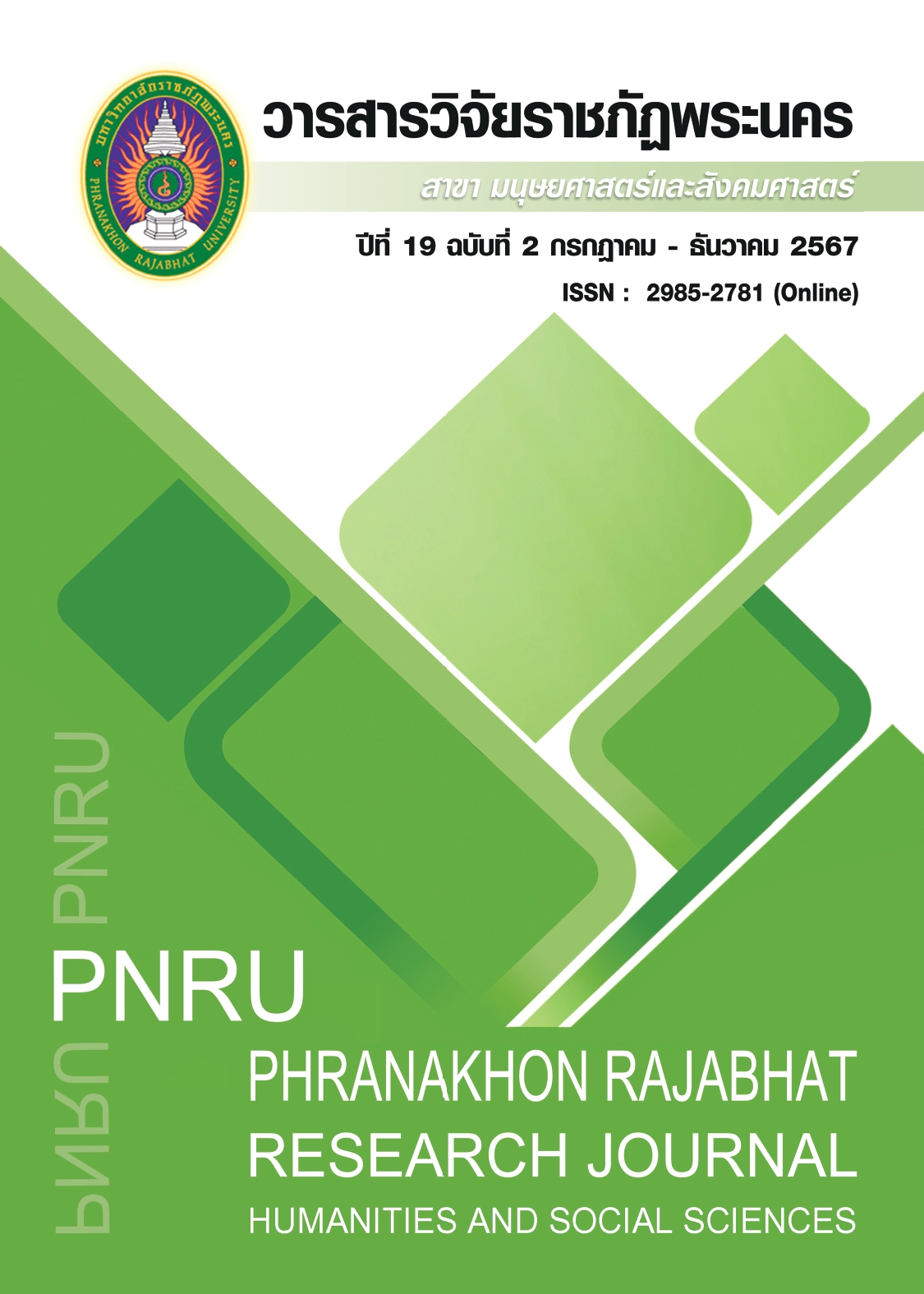THE PROVISIONAL RELEASE OF ABSOLUTE PRISONERS FOR THE PURPOSE OF REHABILITATION
Main Article Content
Abstract
The main purpose of this research is to conduct studies on the rights of absolute prisoners to be released for the purpose of rehabilitation, and to find appropriate legal measures in Thailand relating the provisional release of absolute prisoners for the purpose of rehabilitation. The qualitative research will be conducted based on documentary research and comparative studies with New York State in the United States, as well as Kingdom of New Zealand.
According to the study, it was found that allowing absolute prisoners to leave the prison temporarily for the purpose of rehabilitation is indeed one of the rights entitled by the absolute prisoners. This is in order to foster relationships between the absolute prisoners and people in the society and their families, so that they can later adjust themselves to the society. As a consequence, after the sentenced have been served and they have been released, absolute prisoners will not repeat their crimes. Specifically, there are also other related rights to work in business entities, both in the public and private sectors, including their family businesses or freelance work, and rights to leave in order to deal with important or family matters, to join certain social activities e.g. visiting a wife who has just given a child’s birth, visiting seriously ill relatives, participating significant religious ceremonies, joining volunteers’ activities etc.
It is proposed, from the research, that the state should enact measures or policies supporting absolute prisoners to leave prisons for the purpose of rehabilitation, especially in the communities where those absolute prisoners will reside after leaving the prisons, as well as that the Corrections Act B.E. 2560 (2017) be amended.
Article Details

This work is licensed under a Creative Commons Attribution-NonCommercial-NoDerivatives 4.0 International License.
Each publish articles were copyright by Phranakorn Rajabhat University
Any contents which appeared in each articles in the journal were authors personal opinion. It did not relate to Phranakorn Rajabhat University and other instructors in the university. Each authors would take responsibility on their articles. If there are any mistake, the authors will take responsibility themselves
References
Criminal News Team. (2023). Eyes on the establishment of corrections industry in 4 regions to find employment to 20,000 prisoners after sentence is served. Retrieved from https://mgronline.com/crime/detail/9660000009051 [2023, 2 Aug.]
Department of Corrections. (2023). Report on the statistics of the convicted. Retrieved from http://www.correct.go.th/stathomepage [2023, 2 Aug.]
Jitsawang, N. (1997). Principles of penology. Nonthaburi : Department of Corrections.
Jitsawang, N. (2000). Purpose of punishment. Retrieved from https://www.gotoknow.org/ posts/454719 22/8/66 [2023, 22 Aug.]
On-chom, L. (2016). Determination of sentences to be proportionate to the offenders in drug-related offences. (Master Thesis). Dhurakij Pundit University, Bangkok.
Krabkaikaew, P. (2015). legal issues concerning the protection of privacy rights of inmates in prisons. Retrieved from https://grad.dpu.ac.th/upload/content/files. [2023, 22 Aug.]
Seema, S. (2020). Prison overcrowding. Bangkok: Technical Affairs, Secretariat Office of the House of Representatives.
Serm-sindham, P. (2021). “Criteria on the determination of criminal punishment” under the data-supported project for the members of parliament’s work. Bangkok: King Prajadhipok’s Institute.
Suthiyothin, N. (2011). Documents on theory of punishment, guidelines, advanced criminal law and criminology subject unit 6. Nonthaburi: Sukhothai Thammathirat Open University.
The Department of Corrections works. (2018). Release to work - a guide for employers. Retrieved from https://www.corrections.govt.nz/resources/information_brochures/rele ase to_work__a_guide_for_employers [2023, 29 Sep.]
The Department of Corrections works. (2023). Working while in prison. Retrieved from https://www.corrections.govt.nz/resources/information_brochures/release_to_work__a_guide_for_employers [2023, 29 Sep.]
Worapat, T. (2015). Legal Principles on the Enforcement of Imprisonment Sentences (3rd Edition). Bangkok: Winyuchon.


